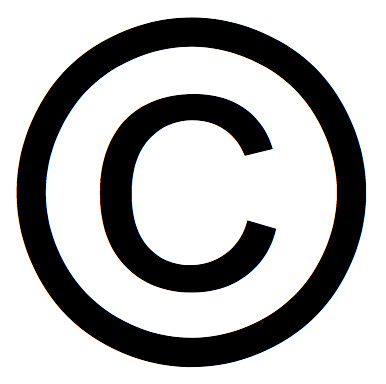Discussed previously in my last blog post: 'What user generated content is emphasised by 'Web 2.0'' In it is a large section on mashups in music and the idea of who becomes the owner of that newly created media. In this weeks post the law CopyRight will be put against its rival and mirrored foe, CopyLeft.
Vs.
So, I think the ideas of both are explanatory in themselves. CopyRight gives the author the rights to his property and must be asked by anyone who wants to use it i.e. in Mashups - but people doing Mashups use hundreds of clips from dozens of songs meaning that getting permission would most probably take months and so don't bother. CopyLeft, well, its the opposite to CopyRight (hence the mirrored image). This is not a registered law but it makes aware that the media that it is on is and will stay freely available to edit and share, without the worry of large intimidating record companies or publishers handing you a hefty fine or an invitation to join them in a heated debate in the laws of court - with you obviously having no chance of winning btw.
Much like health and safety, CopyRight is getting out of control as my good friend Stephan Fry discusses here:
(It is quite long but there are some very good points made by the Tech icon and boffin)
I think some good points he makes is that the CopyRight laws compare someone downloading an episode of tv to a criminal stealing a handbag or a car. Also, I think I mentioned this in one of my previous blogs is that if you download a film, watch and enjoy it, you will most probably buy the film when it comes to DVD or BluRay. I do think Fry is right when he says that if someone had downloaded illegally a whole season of tv or a collection of albums and then selling them perhaps stating them as the 'real thing' are the real criminals and should be the ones getting prosecuted, not the general public who are probably fans that love the music, games or films that they are downloading. In most cases they cant wait for the film or album to come out and some want to wathc it before it is released and then will pay to see it in 3D IMAX at the cinemas.
There are some powerful people backing CopyRight (mainly organisations not people) but there also powerful and respected icons like Stephan Fry who back the CopyLeft movement. In a film watched called A Remix Manifesto there is actually a lawyer who is backing the CopyLeft ideas. Here is a speech he did:
The part of the video about the home video footage of the baby is a great example of how ridiculous the CopyRight law has become. The fines recieved for CopyRight infringement seems as equally over the top, in an example a woman was fined for $US220.000 for sharing 24 songs!
The Internet was built for one main reason: sharing information around the world; but what good is that if large corporations are blocking and filtering this. I think that CopyRight should still be there but not as persistent and harsh, it just limits the creativity and imagination of others. I think a comment posted by a viewer (judemoir) of the video above has some interesting points and is a good summary to finish this post with:
"I suppose the point is not to completely eradicate copyright laws. Lessig makes it clear that he wants a balance, between artists getting reward for their innovation, and the public being able to use that. He does not support people making money from copying DVDs for example, but he thinks that stopping people from building on culture is detrimental and only benefits the few fat cats that get all the money!"


